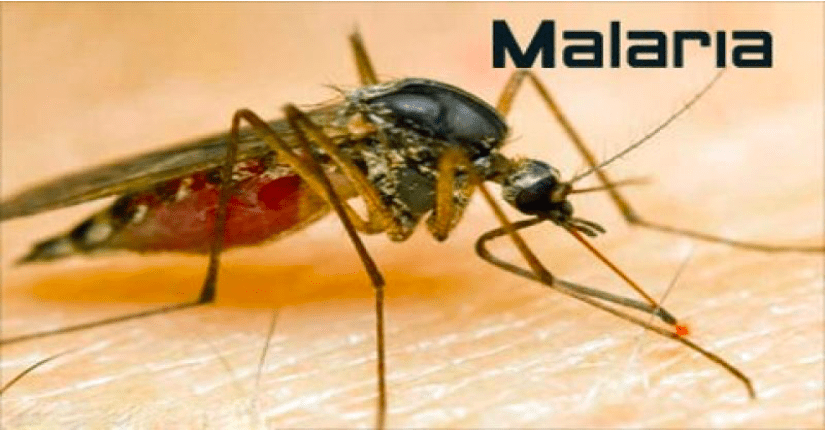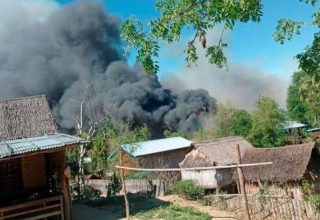
The People for Health project, has called on the District Assemblies Common Fund (DACF) Secretariat to deduct the 0.
5 percent of the malaria fund at source to ensure its efficient use.
It said the current system, where the funds were transferred as part of the assemblies’ resources did not encourage the assemblies to comply with the directives of setting aside the 0.5 per cent for malaria programmes.
It urged the Metropolitan, Municipal and District Assemblies (MMDAs) to open separate bank accounts for the fund while the National Malaria Control Programme provided guidelines for the utilization of the fund.
The MMDAs should also ensure the setting up of malaria programmes implementation committees.
The call was made in a presentation by Ms Anita Asare Awuku, the SEND Ghana Coordinator of People for Health project in Accra at a District Level Dialogue and Validation of Report on the 0.5 percent DACF for Malaria and Malaria-related Expenditure in Medium Term Development Plans (MTDPs) of MMDAs.
The Report was on a survey conducted by the District Citizens Monitoring Committee of the People for Health project in its operational areas in the country supported by a consortium including; SEND Ghana, Penplusbytes and the Ghana News Agency.
It was on the theme: “Ghana’s Commitment to the Fight Against Malaria: A Fantasy or Reality?: A look at The 0.5 Percent DACF for Malaria and District Medium Term Development Plans.”
In all, four regions; Northern, Eastern, Volta and Greater Accra and 20 districts were selected for the study.
The districts include; Tamale Metro, Yendi, East Mamprusi, Central Conja, Gushegu, New Juabeng, Afram Plains North, Lower Manya Krobo, Birim South, Akuapem North, La Dadekotopon, La Nkwantanang, Accra Metro, Tema Metro, Ashaiman, Krachi East, Nkwanta South and North, Agbetime Ziope and Adaklu.
The survey was between November, 2018 and April, 2019 and available data from the 17 DMTDPs, four out of the 17 districts did not budget for malaria programmes in their plans in the years under review.
The survey was between November, 2018 and April, 2019 and available data from the 17 DMTDPs, four out of the 17 districts did not budget for malaria programmes in their plans in the years under review.
It said: “Out of the total budget of GH¢1.6 billion allocated to the 2018-2021 DMTDPs only GHc1 million representing 0.1 per cent was allocated to malaria prevention and treatment. Of this amount, GoG is expected to contribute GH¢499,160 (48.0) with the assemblies devoting 109,536.5 representing 10.8 per cent of their Internally Generated Fund to support malaria programmes.”
It said on the management and utilization of the 0.5 per cent DACF for malaria, the results of the study showed that four out of 12 districts that provided data did not comply with the directives by the Common Fund Secretariat to support malaria control programmes.
“The eight assemblies, which indicated compliance, one assembly (Accra Metro) could not provide information on allocations for 2015, 2016 and 2017 thereby raising concerns about their claims. The main reasons cited for the non-adherence by these assemblies are the lack of comprehensive guidelines for utilization of the 0.5 percent for malaria and also lack of request from the District Health Management Teams (DHMTs) to the assemblies for the release of the funds. One assembly did not know that it has to deduct 0.5 percent for malaria programme,” it said.
“Unlike the 0.5 per cent DACF for HIV programmes and the DACF for Persons with Disability (PWD) which have separate accounts at the assembly level for the management of the funds, the 0.5 per cent for malaria does not have,” it said.
It added that; “The current practices is that, the total DACF for the assemblies are transferred into the accounts of the assemblies. The assemblies are then asked to use 0.5 per cent of that amount for malaria programmes.
“This led to a situation, where the assemblies deliberately refused to open accounts for the malaria funds with the excuses of having too many accounts which increase their transactional cost.”
The survey said on the existence of separate bank accounts for the management of the fund, none of the assemblies had separate accounts for malaria programmes.
An executive summary to the Report urged MMDAs to prioritse local resources mobilization and investment in malaria control programmes in their DMTDPs, saying; “The fight against malaria should be seen as a developmental challenge rather than a health issue.
“That is one of the surest ways by which enough resource could be made available to tackle the issue at the local levels. The current rate of 1.0 per cent of the expected revenue for financing malaria programmes is highly unacceptable.”
It said President Nana Addo Dankwa Akufo-Addo gave the assurance of Ghana’s commitment to overcome the right against malaria by 2030, adding “However, the failure of the MMDAs to prioritise malaria control programmes in their plans and budget and the weak compliance of the guidelines for the utilization of the 0.5 per cent of the DACF could cause the reversal of the gains made in the fight against malaria.
Madam Jane Amerley Oku, the Chief Executive of the Janok Foundation and a focal person of People for Health project said concerns have been raised by stakeholders about the commitment of MMDAs to effectively plan and implement health programme, especially ones that centred on malaria.
Source: gna.org.gh

















